THE EXECUTION PROCEDURE: SPECIAL CONSIDERATION TO THE ARBITRAL AWARD
SPANISH EXPERIENCE
Abstract
Nowadays, societies have judicialized all social relations and, increasingly, they submit conflicts to judicial bodies so that an impartial third party can impose a solution to the dispute and, if necessary, enforce the resolution, even using the outside world, if necessary.
Nevertheless, this greater litigiousness, supposes that the Administrations and Justice suffer a collapse that does not allow to give answer to the pretensions requested by the citizens in a due time. All this is reason enough to look for formulas that allow to speed up the judicial response to the conflicts raised by the citizens.
There are complementary and alternative formulas to the Administration of Justice to resolve conflicts. However, the State, in the hands of the judicial bodies, is the only one that has the empire that confers it the coercive force to enforce what has been resolved and that the essential content of the right to effective judicial protection, of which all human beings are holders, can be fulfilled.
In this article I have focused on studying the institution of arbitration as an alternative formula for conflict resolution where an impartial third party imposes the solution of the conflict. This situation can be understood as a relief from the clogging up of the Courts and Tribunals. However, the powers of the arbitrators are exhausted with the resolution of the claims. Thus, in the event that the parties do not comply with the resolution of the arbitration award, the judicial bodies must be called upon to precede the execution of the resolution in a coercive manner.
The following pages are devoted to a study of the procedural requirements and the most relevant aspects of this procedure for the enforcement of the arbitral award.
References
ARROM, R., «La ejecución del laudo arbitral», en Cuadernos de la Facultad de Derecho, Vol. 18, 1992 (en línea)
BARONA VILAR, S., «El laudo arbitral: motivación, plazos y causas de anulación. El laudo conciliatorio» en GONZÁLEZ PILLADO, E (Coord.)., Resolución de conflictos en materia de consumo: proceso y arbitraje, Tecnos, Madrid, 2010.
BONET NAVARRO, A (Dir.)., CALATAYUD SIERRA, A; HERRERO PERZAGUA, JF; LÓPEZ SANCHEZ, J., Proceso civil y mediación. Su análisis en la Ley 5/2012, de mediación en asuntos civiles y mercantiles, Aranzadi, Navarra, 2013.
COLMENERO GUERRA, JA., «La intervención del juez en el arbitraje de consumo (RD 231/2008). Medidas cautelares, prueba, medios de impugnación y ejecución» en GONZÁLEZ PILLADO, E (Coord.)., Resolución de conflictos en materia de consumo: proceso y arbitraje, Tecnos, Madrid, 2010.
FERNÁNDEZ-BALLESTEROS, MA., La ejecución forzosa y las medidas cautelares en la Nueva Ley de Enjuiciamiento Civil, Iurgium, 2001.
FRLOS MATÍES, JM:
● «Denegación del despacho de ejecución» en El proceso civil. Vol. IV, Tirant lo Blanch, Valencia, 2001.
● «Oposición a la ejecución fundada en títulos no judiciales» en El proceso civil. Vol. IV, Tirant lo Blanch, Valencia, 2001.
● «Ejecución forzosa: plazo de espera», en El proceso civil. Vol. IV, Tirant lo Blanch, Valencia, 2001.
GUZMÁN FLUJA, VC., «Consideraciones sobre el procedimiento arbitral de consumo: trámite de audiencia, reconvención, mediación y acumulación de procedimientos», en GONZÁLEZ PILLADO, E (Coord.)., Resolución de conflictos en materia de consumo: proceso y arbitraje, Tecnos, Madrid, 2010.
HERRERA DE LAS HERAS, R., «La autonomía de la voluntad en el arbitraje y en la mediación. Jurisprudencia constitucional española y experiencias en el ámbito del consumo» en Revista de Derecho, vol. 25, n.1, Valdivia, Julio 2012.
MORENO CATENA, V:
● «La ejecución forzosa: cuestiones generales», en El proceso civil. Vol. IV, Tirant lo Blanch, Valencia, 2001.
● «La caducidad de la acción ejecutiva», en El proceso civil. Vol. IV, Tirant lo Blanch, Valencia, 2001.
MORILLAS JARILLO, MJ., «El cumplimiento del laudo arbitral» en Diario La Ley, núm. 9525, de 25 de noviembre de 2019.
VALIÑO CES, A., «Acerca del método híbrido o med-arb: otra forma de resolver los conflictos», en Diario La ley, nº 9469, de 19 de septiembre de 2019.
YÁÑEZ VELASCO., «De la ejecución forzosa del laudo», en Comentarios a la nueva Ley de Arbitraje.
Published
Versions
- 2024-03-19 (2)
- 2024-03-19 (1)





